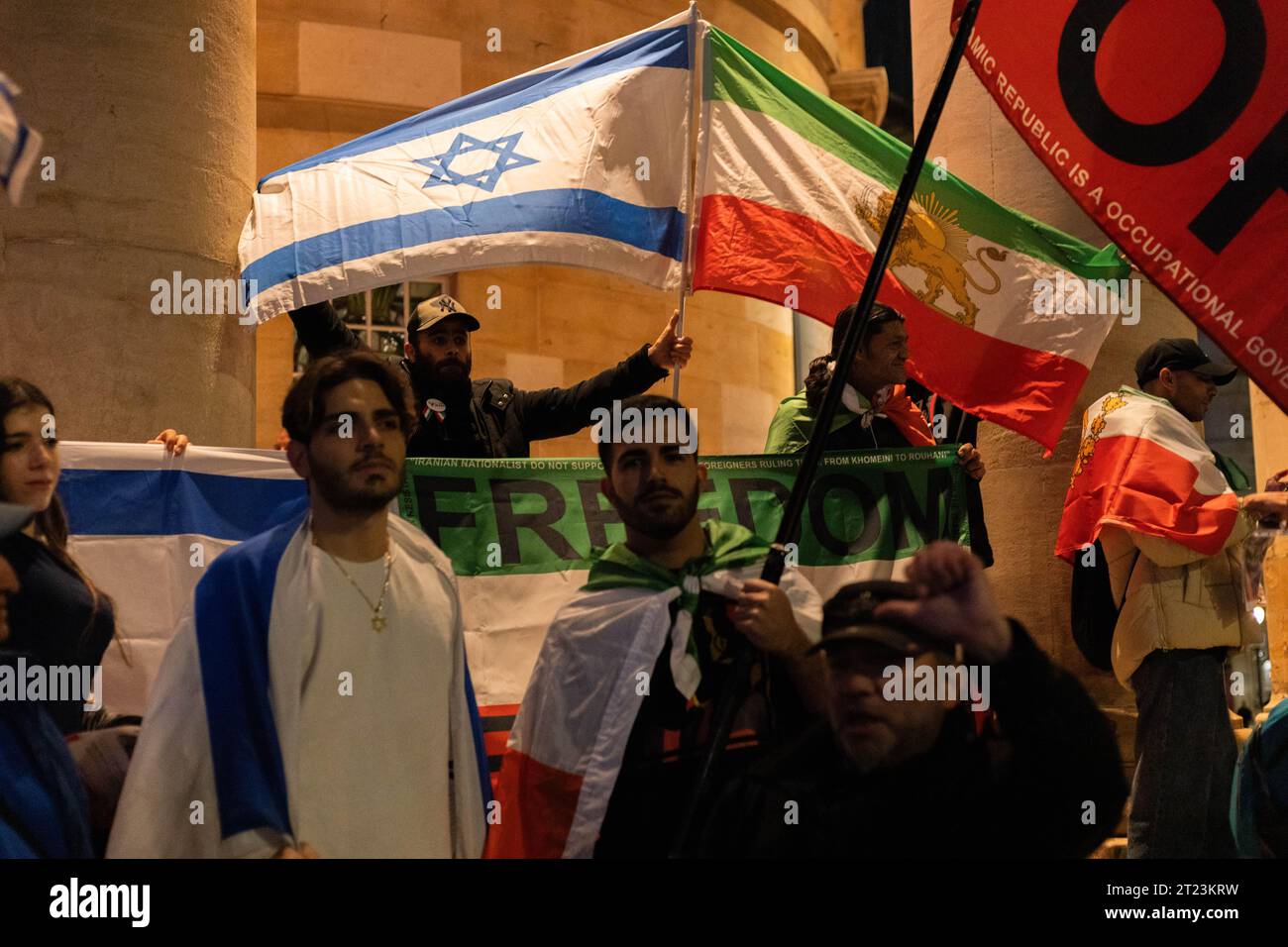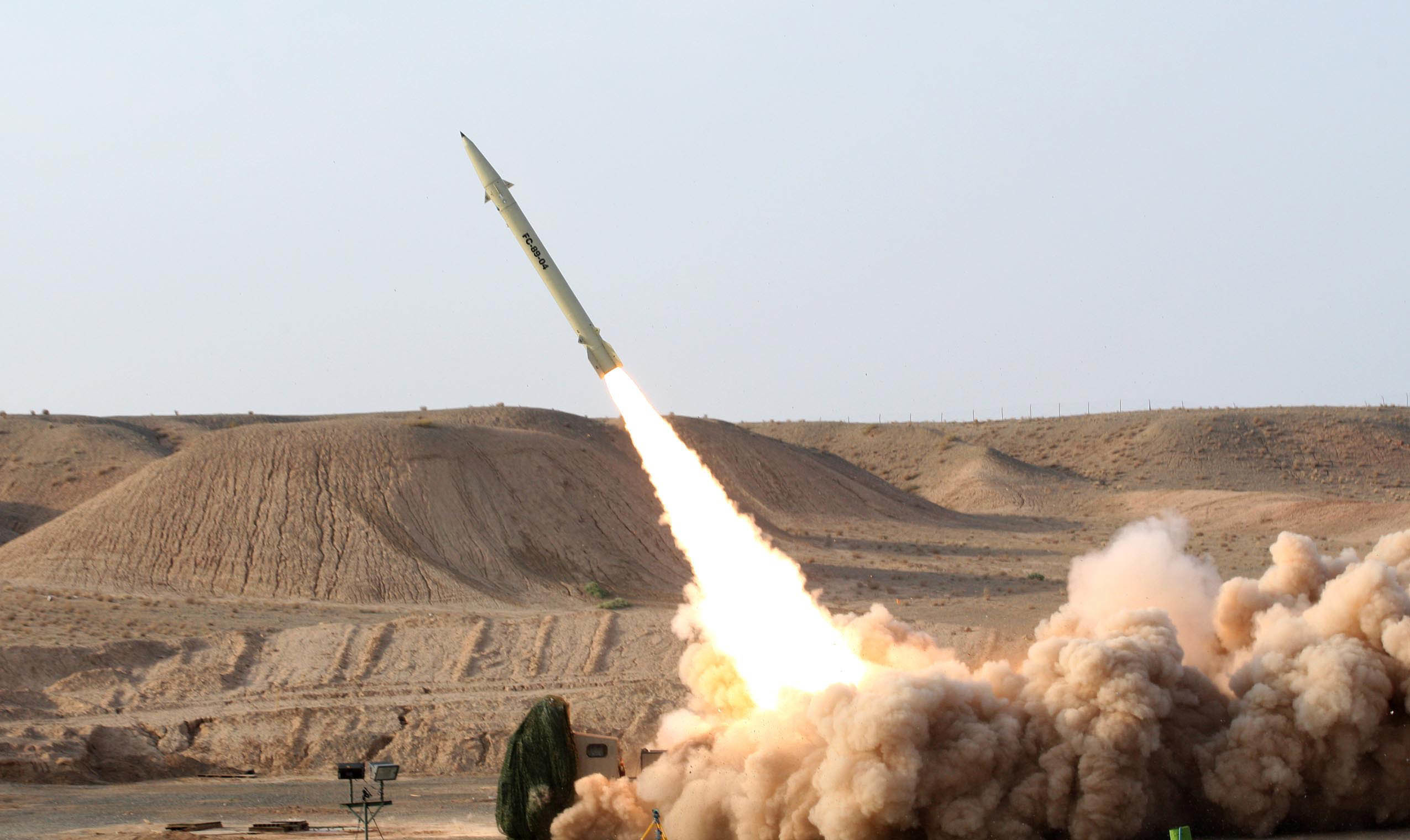Historical Context: Iranian Israeli

The relationship between Iran and Israel is a complex and often fraught one, rooted in a history of political, ideological, and religious tensions. While both nations share ancient roots in the Middle East, their modern history has been marked by conflict and mistrust, fueled by competing claims to the land and the broader geopolitical landscape of the region.
Timeline of Key Events
The history of Iran-Israel relations is characterized by a series of key events that have shaped the current state of affairs. Here’s a timeline of significant moments:
- 1948: Israel declares independence, leading to the first Arab-Israeli War. Iran, under the Shah, maintains neutrality but expresses support for the Palestinian cause.
- 1979: The Iranian Revolution leads to the establishment of the Islamic Republic, which adopts a hostile stance towards Israel. Ayatollah Khomeini, the new leader, declares Israel an illegitimate state and calls for its destruction.
- 1980-1988: The Iran-Iraq War sees both Israel and Iran supporting opposing sides. Israel provides intelligence and weapons to Iraq, while Iran receives support from Syria and other Arab states.
- 1990s: Despite the ongoing hostility, there are some limited contacts between the two countries, particularly in the realm of intelligence sharing.
- 2000s: Tensions escalate further, with Iran developing a nuclear program and Israel threatening military action. The two countries engage in a proxy war in Lebanon and Syria.
- 2010s: The nuclear deal with Iran is signed in 2015, raising hopes for improved relations. However, the US withdrawal from the deal in 2018 reignites tensions.
Role of Religion, Ideology, and Politics
Religion, ideology, and political factors have played a crucial role in shaping the historical antagonism between Iran and Israel.
- Religious Differences: The Islamic Republic of Iran is a Shia Muslim state, while Israel is a Jewish state. The two faiths have a long history of conflict and tension, with differing interpretations of religious texts and historical narratives.
- Ideological Differences: Iran’s revolutionary ideology, based on Islamic principles, sees Israel as an illegitimate entity created by Western powers. Israel, on the other hand, views Iran as a major threat to its security, particularly due to its support for militant groups like Hamas and Hezbollah.
- Political Factors: The competition for regional power and influence has also contributed to the conflict. Iran’s support for Palestinian groups and its efforts to expand its influence in the region are seen as a direct challenge to Israel’s security and interests.
Current Issues and Challenges

The relationship between Iran and Israel is fraught with tension, shaped by historical grievances, ideological differences, and a constant struggle for regional dominance. The current political and security landscape is characterized by a complex web of alliances, rivalries, and proxy conflicts, making the situation volatile and unpredictable.
The Iranian Nuclear Program
The Iranian nuclear program has been a major point of contention between Iran and Israel for decades. Israel views Iran’s nuclear ambitions as an existential threat, fearing that Tehran could develop nuclear weapons capable of reaching its territory. The international community has imposed sanctions on Iran to pressure it to curb its nuclear program, but these have had mixed results.
“Iran has repeatedly stated that its nuclear program is for peaceful purposes, but Israel and many Western countries remain skeptical.”
The impact of the Iranian nuclear program on the relationship between Iran and Israel is multifaceted:
- Increased tensions: The program has fueled a climate of mistrust and suspicion, leading to a series of military escalations and diplomatic standoffs.
- Regional instability: The program has contributed to regional instability, as countries in the Middle East have sought to align themselves with either Iran or Israel, creating a complex network of alliances and rivalries.
- International sanctions: The sanctions imposed on Iran have had a significant impact on its economy and its ability to project power in the region.
- Military buildup: Both Iran and Israel have engaged in a significant military buildup, with each side seeking to deter the other from taking aggressive action.
Regional Powers and the Iran-Israel Dynamic
Regional powers such as Saudi Arabia and the United Arab Emirates (UAE) have played a significant role in shaping the dynamics between Iran and Israel.
- Saudi Arabia: Saudi Arabia is a staunch opponent of Iran and has been a key player in the effort to contain its influence in the region. Riyadh has supported Israel’s stance on the Iranian nuclear program and has engaged in covert operations against Iranian interests.
- United Arab Emirates: The UAE has taken a more pragmatic approach to Iran, seeking to maintain good relations while also working with Israel to counter Iranian influence. The UAE has normalized relations with Israel, a move that has been welcomed by both countries but has been met with criticism from Iran.
The role of these regional powers has further complicated the relationship between Iran and Israel, creating a complex geopolitical landscape where alliances and rivalries are constantly shifting.
Potential for Future Engagement

While the relationship between Iran and Israel remains deeply strained, the possibility of future engagement cannot be entirely discounted. Exploring areas of common interest and potential cooperation could lay the groundwork for a more stable and productive relationship in the long term.
Areas of Common Interest
The potential for cooperation between Iran and Israel, while seemingly unlikely, is not entirely absent. Shared interests in economic development, security, and environmental concerns could provide a basis for future dialogue and collaboration.
- Economic Development: Both countries have a strong entrepreneurial spirit and a desire to enhance their economies. Collaboration in areas like technology, agriculture, and tourism could be mutually beneficial. For example, Israel’s expertise in water management and agricultural technology could be invaluable to Iran, which faces water scarcity issues. Conversely, Iran’s vast energy resources could offer potential for investment and cooperation.
- Security: Both countries face common security threats, particularly from extremist groups and the instability in the region. While their perspectives on regional security differ significantly, a shared interest in combating terrorism could provide a platform for dialogue and cooperation. For instance, both countries have faced the threat of ISIS and could benefit from sharing intelligence and cooperating on counter-terrorism efforts.
- Environmental Concerns: Iran and Israel share a common interest in protecting the environment, particularly in the face of climate change. Cooperation on water management, renewable energy, and combating desertification could be mutually beneficial. For example, joint efforts to conserve the shared water resources of the Jordan River or develop renewable energy solutions in the region could address environmental challenges and promote regional stability.
Obstacles to Engagement, Iranian israeli
Several significant obstacles stand in the way of any potential rapprochement between Iran and Israel. These include:
- Political and Ideological Differences: The two countries have deeply entrenched political and ideological differences. Israel’s recognition by the United States and its strong ties to the West stand in contrast to Iran’s stance as a leading anti-Western power. Iran’s support for Hezbollah and other militant groups is a major source of friction with Israel, which views these groups as a direct threat to its security.
- Nuclear Issue: The unresolved issue of Iran’s nuclear program remains a major point of contention. Israel views Iran’s nuclear ambitions as a grave threat to its existence and has repeatedly threatened military action if necessary. The Joint Comprehensive Plan of Action (JCPOA), which aimed to curb Iran’s nuclear program, has been weakened by the United States withdrawal and faces an uncertain future.
- Lack of Trust: Years of hostility and mistrust have created a deep chasm between Iran and Israel. The absence of diplomatic relations and the constant threat of conflict have made it difficult to build any meaningful trust or cooperation.
Hypothetical Scenario for Future Engagement
Despite the challenges, a hypothetical scenario for future engagement could be envisioned. It would require a significant shift in both countries’ policies and a willingness to engage in dialogue and compromise.
- Incremental Steps: Engagement could begin with small, low-risk steps, such as technical cooperation in areas like agriculture or water management. These initial steps could build trust and create a foundation for future collaboration.
- Track II Diplomacy: Non-governmental organizations, academic institutions, and other civil society groups could play a role in facilitating dialogue and promoting understanding between Iran and Israel. Track II diplomacy could provide a space for informal discussions and the exploration of common interests.
- Addressing Core Issues: Eventually, the two countries would need to address the core issues that have fueled the conflict, such as the nuclear program and the support for militant groups. This would require significant concessions and compromises from both sides.
- Regional Cooperation: The potential for cooperation could be enhanced by broader regional initiatives. For example, a regional framework for water management or energy cooperation could create incentives for Iran and Israel to work together.
Iranian israeli – The complex geopolitical relationship between Iran and Israel has often been characterized by tensions and mistrust. While their historical interactions are rooted in shared cultural influences, their modern-day conflict stems from ideological differences and regional power dynamics. One intriguing aspect of this dynamic is the presence of artifacts like a silver dressing table chair , which might symbolize the intricate blend of tradition and modernity that exists in both countries.
These objects, often steeped in history and craftsmanship, offer a glimpse into the cultural complexities of these nations and the potential for understanding across their differences.
The complex relationship between Iran and Israel is often characterized by a history of tension and mistrust. A key aspect of this dynamic is the potential for conflict, which requires careful consideration of security measures. In this context, it’s interesting to note the use of table and chair racks in certain strategic locations.
These racks, while seemingly mundane, can be utilized for both defensive and offensive purposes, adding another layer of complexity to the already intricate political landscape.
